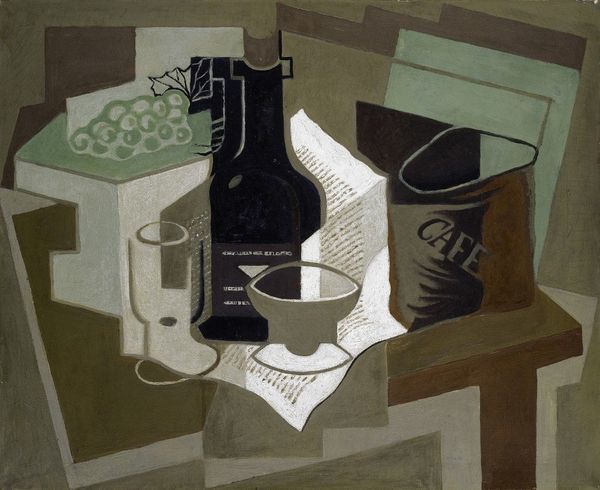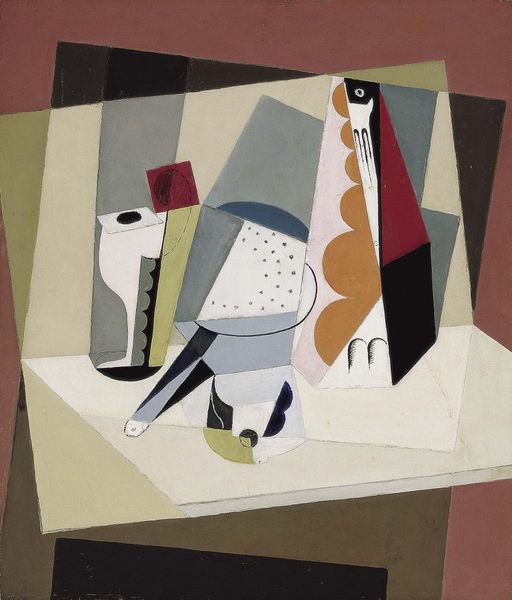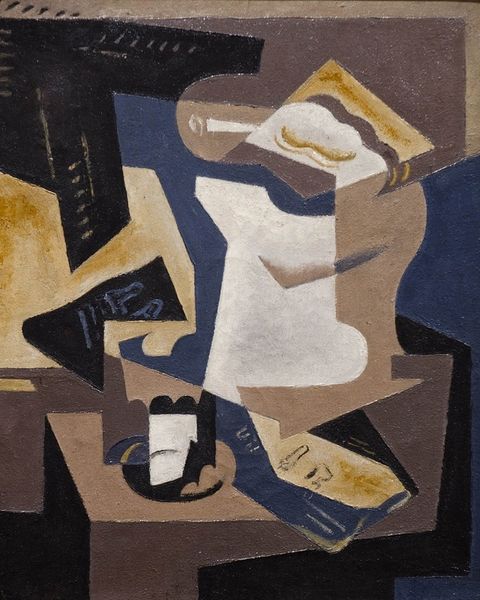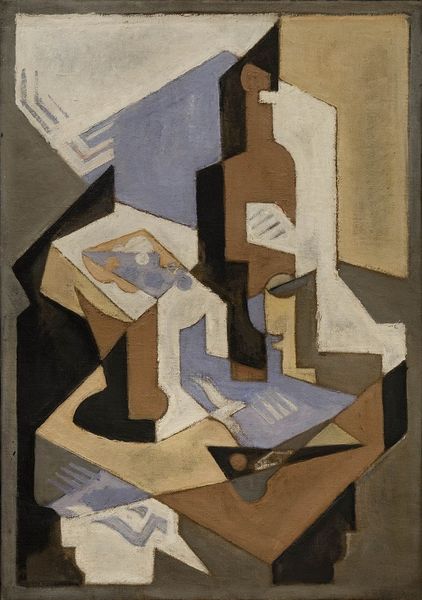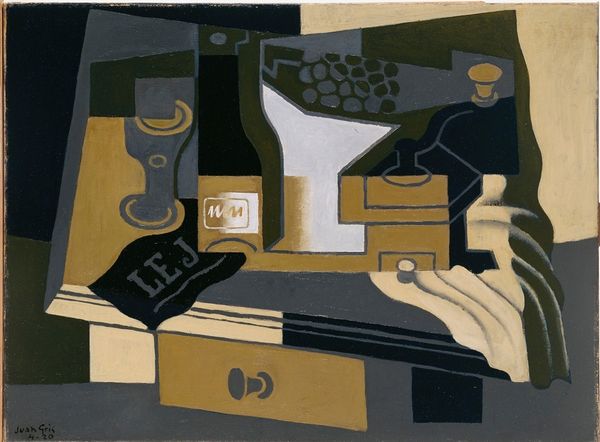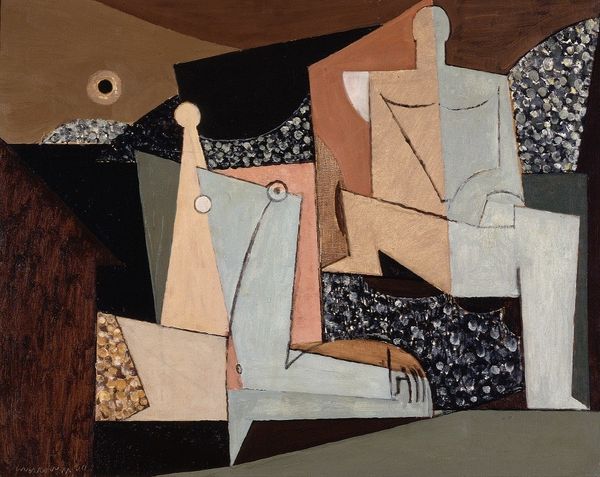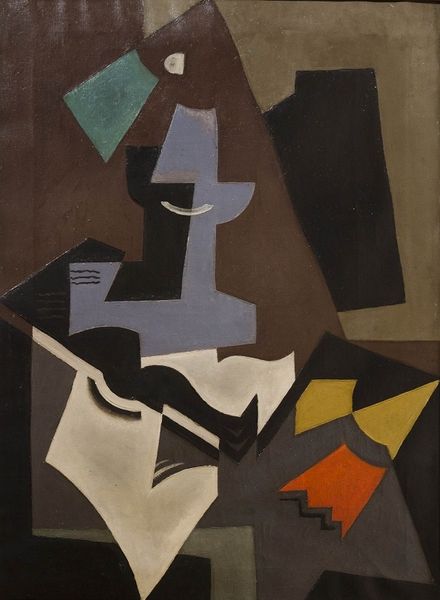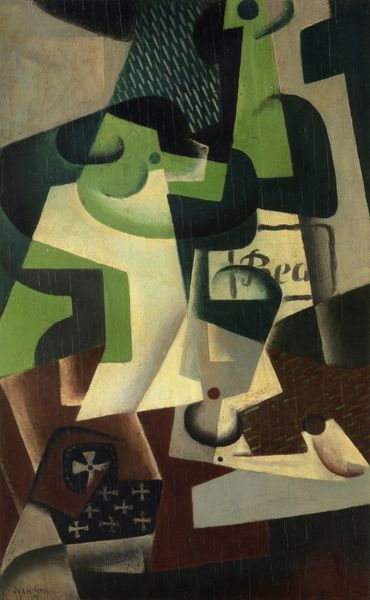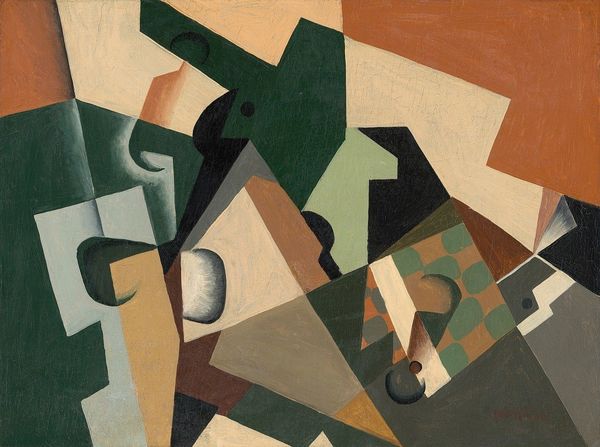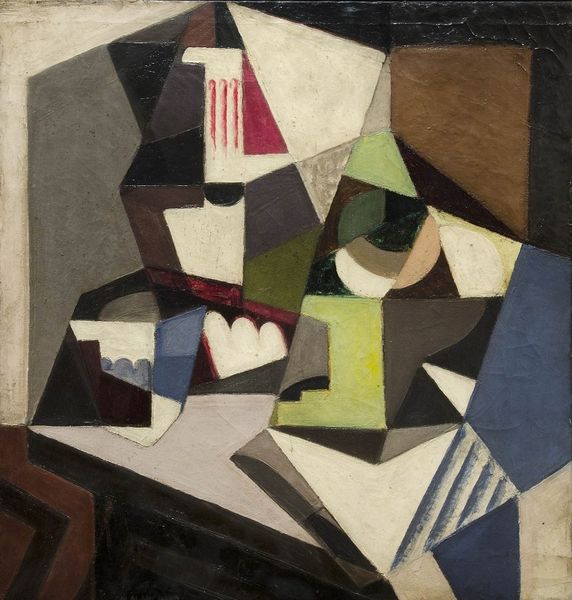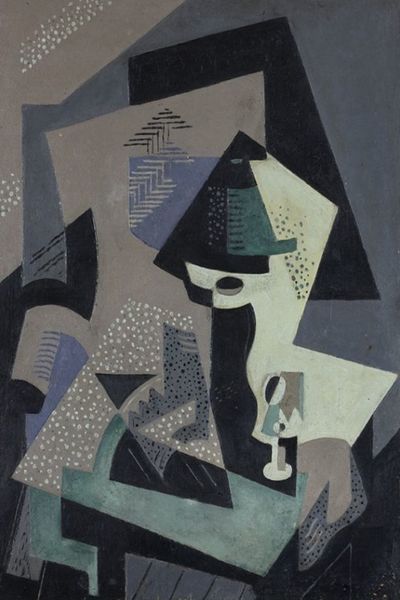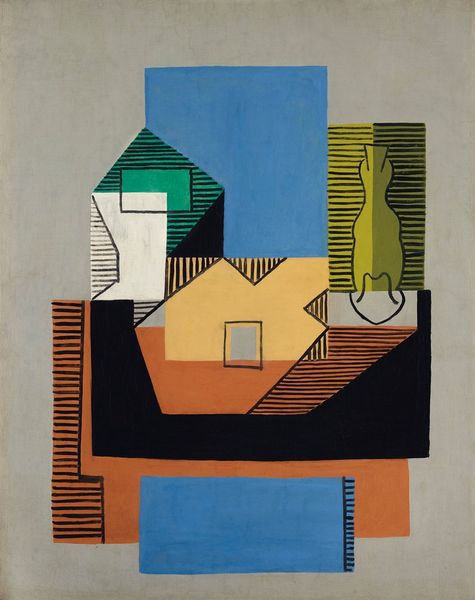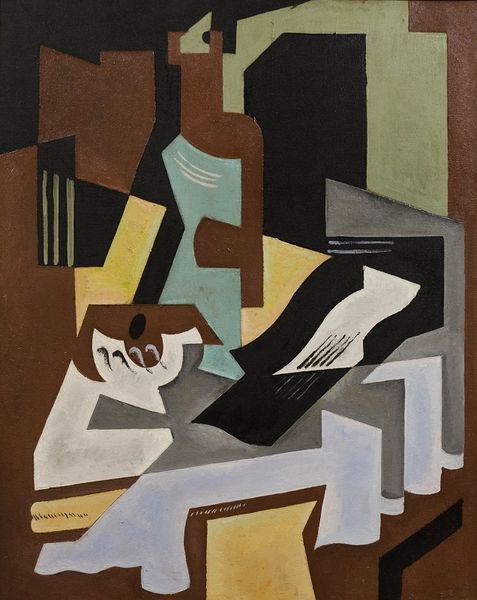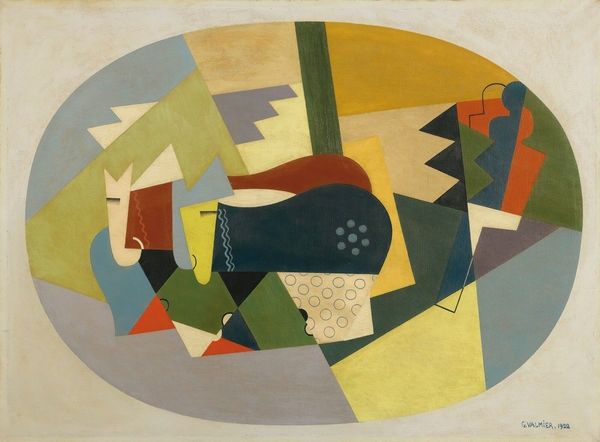
painting, oil-paint
#
cubism
#
painting
#
oil-paint
#
oil painting
#
geometric
#
abstraction
#
modernism
Copyright: Public domain
Curator: Oh, it's one of those paintings where the objects have all broken up and moved around the table. Looks kind of like the aftermath of a tipsy poker night. Editor: Indeed! We’re looking at María Blanchard’s “Naturaleza Muerta Con Cartas De Juego,” or "Still Life with Playing Cards," an oil painting from 1919, situated within the Cubist movement. Curator: Cubist…right, that explains why the cards aren’t playing so nice! I love the muted tones, that quiet, greyed-out palette feels so different than a lot of bolder Cubism. Editor: The painting's geometric abstraction definitely challenges our perception of reality. Blanchard was exploring how perspective and form could convey emotion and challenge academic traditions in post-World War I Europe. Curator: It's fascinating how these flat planes somehow create depth. Like, I can *feel* the weight of that abstracted bottle or whatever it is sitting there, looming over everything. Does it make you wonder if there is any personal element in such an impersonal rendering of reality? Editor: Absolutely! We need to contextualize this work and other similar examples of still life painting by other female artists such as Georgia O'Keefe, Hilma af Klint or Agnes Martin as a visual declaration against traditionally patriarchal values and a pursuit for abstraction as a gateway to deeper levels of consciousness that reject gender and sexism in toto. The objects depicted here—cards, a bottle, and geometric shapes—become vehicles for exploring complex social themes within the avant-garde artistic landscape. Curator: I guess. For me it feels like I'm piecing together memories. Like when something terrible happens and your brain tries to reconstruct what took place after. Editor: I find Blanchard’s deconstruction almost architectural; it hints at both destruction and the possibility of rebuilding. Curator: Right! Perhaps, at the time she felt similarly in the wake of the first world war. Editor: Considering that context enriches our interpretation, revealing not just an artistic experiment, but a potent response to social realities. Curator: So true. It definitely makes me think differently about card games! Editor: Absolutely, and perhaps next time you’re playing, remember the power of art to reflect, critique, and maybe even reshuffle the cards of reality.
Comments
No comments
Be the first to comment and join the conversation on the ultimate creative platform.
